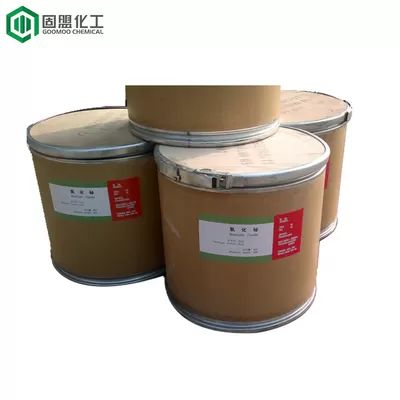Key characteristics and uses of bismuth powder
2023-10-16
Bismuth powder is a finely divided form of the chemical element bismuth (Bi). Bismuth is a heavy metal with unique properties, and its powder form has various applications across different industries. Here are some key characteristics and uses of bismuth powder:
Chemical Properties:
- Chemical Symbol: Bi
- Atomic Number: 83
- Atomic Weight: Approximately 208.98 g/mol
- Appearance: Bismuth is a silvery-white metal in its solid form, but bismuth powder consists of very small particles, which can give it a grayish or slightly brownish appearance.
Key Features:
1. Density: Bismuth is one of the heaviest stable elements, and its powder form retains this characteristic. It has a relatively high density.
2. Low Toxicity: Bismuth and its compounds are generally considered to be of low toxicity, making bismuth powder safer to handle compared to some other heavy metals like lead or mercury.
Common Uses:
Bismuth powder has a range of applications in various fields:
1. Pharmaceuticals: Bismuth compounds, including bismuth subsalicylate, are used in over-the-counter medications like Pepto-Bismol to relieve gastrointestinal symptoms such as indigestion, heartburn, and diarrhea.
2. Cosmetics: Bismuth oxychloride, a compound derived from bismuth, is used in cosmetics, particularly in makeup products like foundation and face powders. It provides a smooth, silky texture and a pearlescent or shimmery appearance.
3. Metal Alloys: Bismuth powder can be used as an alloying agent, often in combination with other metals like lead, tin, or cadmium, to produce alloys with unique properties. For example, bismuth-tin alloys are used in low-temperature solders.
4. Fusible Alloys: Bismuth-based fusible alloys, such as Woods metal and Field's metal, are used in applications where low melting points are desired, such as in fire sprinkler systems, temperature-sensitive safety devices, and casting.
5. Nuclear Industry: Bismuth is used as a component in some nuclear reactor designs. Bismuth-lead eutectic alloy, for example, has excellent neutron shielding properties and can be used to protect sensitive instruments in radiation environments.
6. Thermoelectric Materials: Bismuth and its compounds are used in thermoelectric materials, which can convert heat into electricity or vice versa. Bismuth telluride (Bi2Te3) is a well-known thermoelectric material used in thermoelectric generators and coolers.
7. Manufacturing and Machining: Bismuth powder is sometimes used as a lubricant in metalworking processes to reduce friction and prevent wear on tools.
8. Fire Sprinklers: Fusible alloys containing bismuth are used in fire sprinkler systems. When exposed to high temperatures, these alloys melt, releasing water to suppress fires.
9. Research and Experiments: Bismuth powder is used in scientific research, educational experiments, and metallurgical studies.
10. Art and Crafts: Bismuth-based alloys and powders are sometimes used in art and crafts to create unique sculptures, jewelry, and decorative items.
It's important to note that while bismuth is generally considered less toxic than some other heavy metals, precautions should still be taken when handling bismuth powder to minimize exposure, especially in industrial and manufacturing settings.



